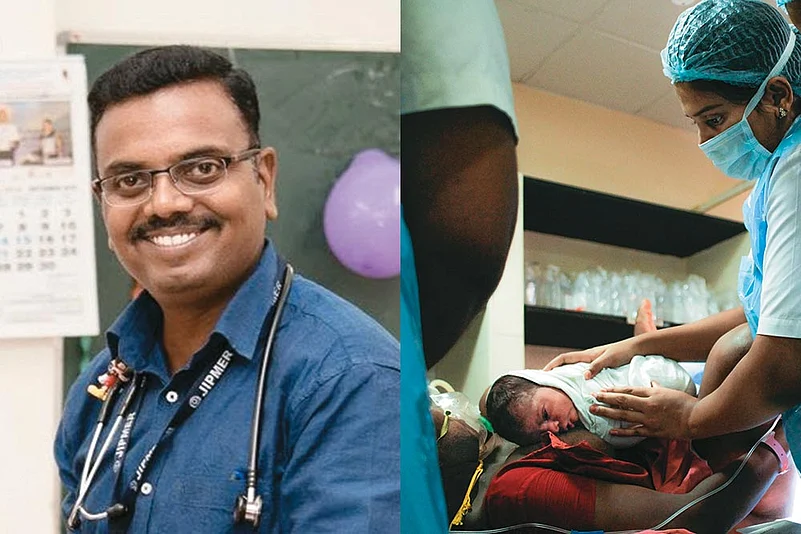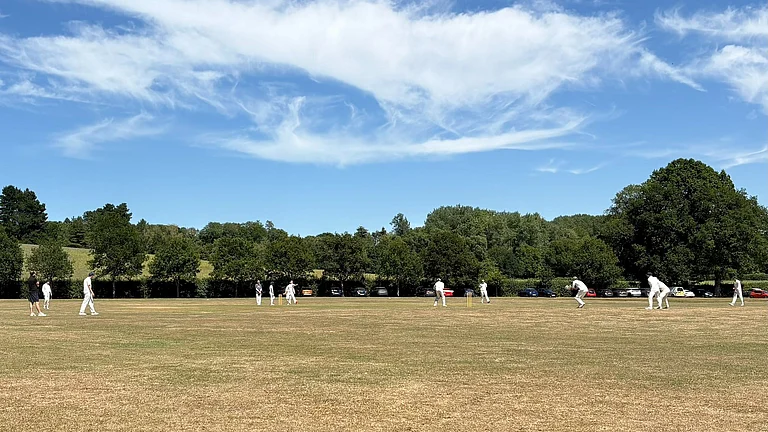When Dr B. Adhisivam, a senior neonatologist at JIPMER Hospital in Pondicherry, found there was a crucial time gap between when a mother delivered a baby and the time she first breastfed it, he hit up on a novel intervention to cut down the minutes in this golden hour after a baby’s entry into the world.
He deputed a dedicated nursing student present in the labour room as the Bonding Angel, whose sole job for the day was to initiate breastfeeding soon after delivery. The Bonding Angel would ensure the mother held the baby in the correct position and there was perfect attachment for the newborn to suckle without interruption.
“We often found that mothers would have unknowingly shifted the baby detaching its lips from the nipple. But our nursing student, who would be the Bonding Angel for the day, would make sure there was no slippage. With over 1,500 deliveries every month the nurses in the neonatal ward were stretched and could not supervise this crucial exercise between a mother and the newborn,” Adhisivam says.
But once the Bonding Angel programme started in 2018 this gap was bridged, points out Dr S. Sindhu, another doctor at JIPMER. “The first successful breastfeed has the potential to prevent hypoglycaemia in the newborn, facilitate uterine contraction in the mother and ensure bonding between the two. We are now trying to quantify the impact of this programme,” she explains.
Another major intervention at JIPMER is the human milk bank started by the neonatology department in 2016, where excess breast milk from lactating mothers is stored after pasteurisation so that it can be fed to needy children in the neonatal ICU. “We can save small and sick preterm babies. We can protect them from gut sepsis and other infections. Similarly, abandoned neonates, temporary interruption of breastfeeding and babies whose mother died in the immediate postpartum period will also benefit,” Adhisivam says.
Creating more human milk banks was essential to ensure nutrition of the newborns, says Adhisivam. There are only about 60 such banks across India, an improvement compared to a decade ago, but needs to expand at a rapid pace since 69,000 babies are born each day in India (Unicef report/2018).
Also Read:
By G.C. Shekhar in Pondicherry


























